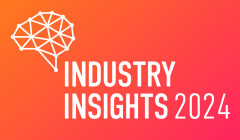
Creativebrief unveils the trends shaping modern marketing
The Industry Insights 2024 report explores the topics on marketing leaders minds today

Red Brick Road’s Zoe Crowther on why balance is at the heart of the actionable change when it comes to employee wellbeing

The mental health crisis in our industry has been a ticking time bomb for many years. Whilst the pandemic undoubtedly worsened the nation’s collective mental health on many levels, the aftermath has perhaps been more positive. Hybrid working showed us, when done right, that work-life balance is achievable. But only if employers actively encourage it.
And here’s the rub.
Pre-pandemic, when it came to the mental well-being of their staff many agencies put up the ping pong table, opened the free beer fridges, scheduled the weekly yoga and called it a job well done. Employees reassured themselves this was a stressful industry, a competitive industry, an industry that they were lucky to have made it in. Long hours in the office were part of the territory. More so – a badge of honour! Leave your desk at 5pm? Ha! Part timer! Not taking client calls on annual leave? Pah! Not committed! Not pulled an all-nighter on that pitch? What?! Do you even want to win it!
No wonder then, when the pandemic hit, and the talented, hard-working people of adland stepped off the hamster wheel they took the time to reflect. And the talent drain began
Zoe Crowther, Managing Partner, Red Brick Road
This toxic culture was, sad to say, endemic. And really, that makes sense. Because we are an overserviced industry, profits correlating to the volume of hours our employees put in. The ‘money for time’ model is the constant, much debated and never solved thorn in the industry’s side. Compounded with the unpaid quest for new business, the perennial balancing of estimates with dwindling client budgets and our inherent need to retain business at all costs. No wonder then, when the pandemic hit, and the talented, hard-working people of adland stepped off the hamster wheel they took the time to reflect. And the talent drain began.
The pandemic, however, also afforded the industry a period of reflection. For the first time, collectively we were able to hold a mirror up to ourselves in an unprecedented way. We won pitches without endless nights of pizza at 11pm! Our clients saw inside our homes and lives and our relationships became stronger! We replaced commuting hours with extra hours of productivity! Of course, it wasn’t all positive and we missed in-person collaboration and let’s be honest, a lot of the fun. But it taught us there could be another way, a way that supported the wellbeing of staff AND our commercial model, if done correctly with care and attention.
And this balance is really at the heart of the actionable change agencies as employers can make. At Red Brick Road, we have always rejected toxic working cultures and been passionate about supporting employee mental health. For example, we have a trained Mental Health team. Our staff have subscriptions to Headspace and “help@hand’ (an app which includes free mental health support video consultations with specialists). And we’ve partnered with the ‘Wellbeing Games’ a virtual wellbeing training programme, which covers mindfulness, movement, nutrition and sleep skills to put wellbeing at the heart of our employees routines.
But the most crucial part of our mental health strategy is recognising that these initiatives should only ever be used as a safety net. More fundamentally, we know the key to staff well-being is to support them as human beings not just employees.
This means, we are supportive of personal boundaries. We have a flat, open culture where staff can talk to management about any issues with workload or personal issues that may affect their work. We have strong supportive policies in place for carers, parents, fertility and menopause to name a few and we fully support leave of absence or flexible hours for those that need them. And we have democratically designed a hybrid working model that balances employee needs with those the business and our clients so everyone can achieve a good work life balance.
In addition, as an independent agency we choose the clients we work with and pitch for. We set ourselves realistic pitch criteria, so we only pursue the clients most suited to our offering (leading to great conversion!). We pause or decline new business when we don’t have capacity as we are prioritising existing clients and we are honest about that. Or we suggest new ways for clients to get to know us without a formal pitch. We’ve recently successfully won two new pieces of business in this way. We also encourage mutually respectful client relationships. We are of course still very service orientated, but we agree a clear blueprint of best practice ways of working together and chose clients whose culture and values are aligned to ours.
In this way at Red Brick Road, we believe healthier working practices both with staff, clients and future clients is the key to optimal staff mental health. As they always say, prevention is better than cure. And whilst we are sure to provide a toolkit of mental health support, we strongly believe agencies ignore the root of the problem at their peril.
Zoe Crowther is Managing Partner at independent creative agency Red Brick Road. She has spent her 20 year career working in both Account Handling and Marketing and Business Development at a number integrated creative agencies.
Looks like you need to create a Creativebrief account to perform this action.
Create account Sign inLooks like you need to create a Creativebrief account to perform this action.
Create account Sign in